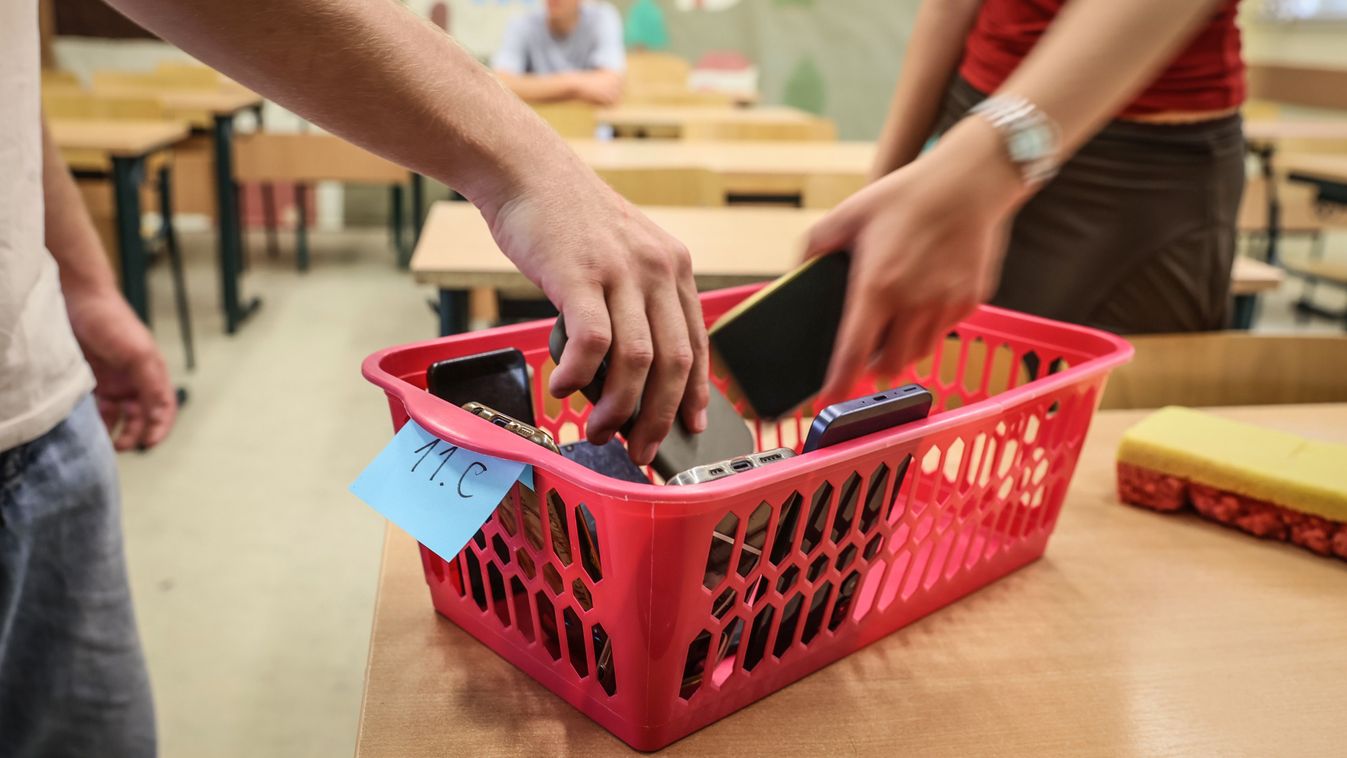As more and more schools across the world move towards banning addictive and disruptive smartphones in school, Hungary is joining the trend, with a nationwide ban going into effect in September.
Hungary is following in the footsteps of a number of countries, including England, France, Austria, Sweden, Finland, Greece, and the Netherlands, which have all introduced bans in a relatively short period of time — most in the last year.
In an interview with Hungarian newspaper Magyar Nemzet, the rector of the Nemeskürty István Faculty of Teacher Training at the National University of Public Service (NKE), Mihály Nánay, stated that the ban is extremely welcome and that schoolwork, studying, and the social atmosphere in schools will improve dramatically.
He listed several issues with smartphones in school, including students taking unwanted videos in classrooms; students using smartphones for digital bullying; and in many cases, students simply looking at their phones, watching videos, or causing distractions in class with the devices. In many cases, some students are obsessively looking at their phones under the table — unable to disconnect and actually focus on tasks.
One of the biggest factors for Nánay is the social disconnect caused by the devices, a problem he hopes a ban will help solve.
“I think the most important thing is the community element of the restriction so that students don’t watch videos during break time, but rather spend time with each other, even in the schoolyard,” he said. “We can be confident that schools will put the new regulation into practice in a realistic way.”
A new poll from the Szent István Institute found that 85 percent of Hungarians agree with the ban, which means parents are also beginning to realize the danger posed by the devices. In some cases, the devices will be made available if there is a special academic purpose for them, but Nánay said the ban is an opportunity to evaluate whether digital devices are necessary at all.
“The restriction is also a good opportunity to consider whether a digital device is really necessary for our lessons, or whether the same material can be taught using analog methods,” he said.
Schools will be allowed to implement their own policies in terms of punishment, allowing them a high degree of autonomy on how to handle consequences should students disregard the ban.
In many cases, teachers can collect phones, a policy already in place in a number of schools.
There are a lot of schools, especially primary schools, where mobile phones have been collected for a long time without any official legal framework.
“The school boards know best their own circumstances, and if additional infrastructure is needed, the authorities should help them. The next period will also be a test period when they will see what difficulties and unexpected situations may arise and will have to adapt their rules accordingly, so there will obviously be a learning and adaptation period,” he said.






